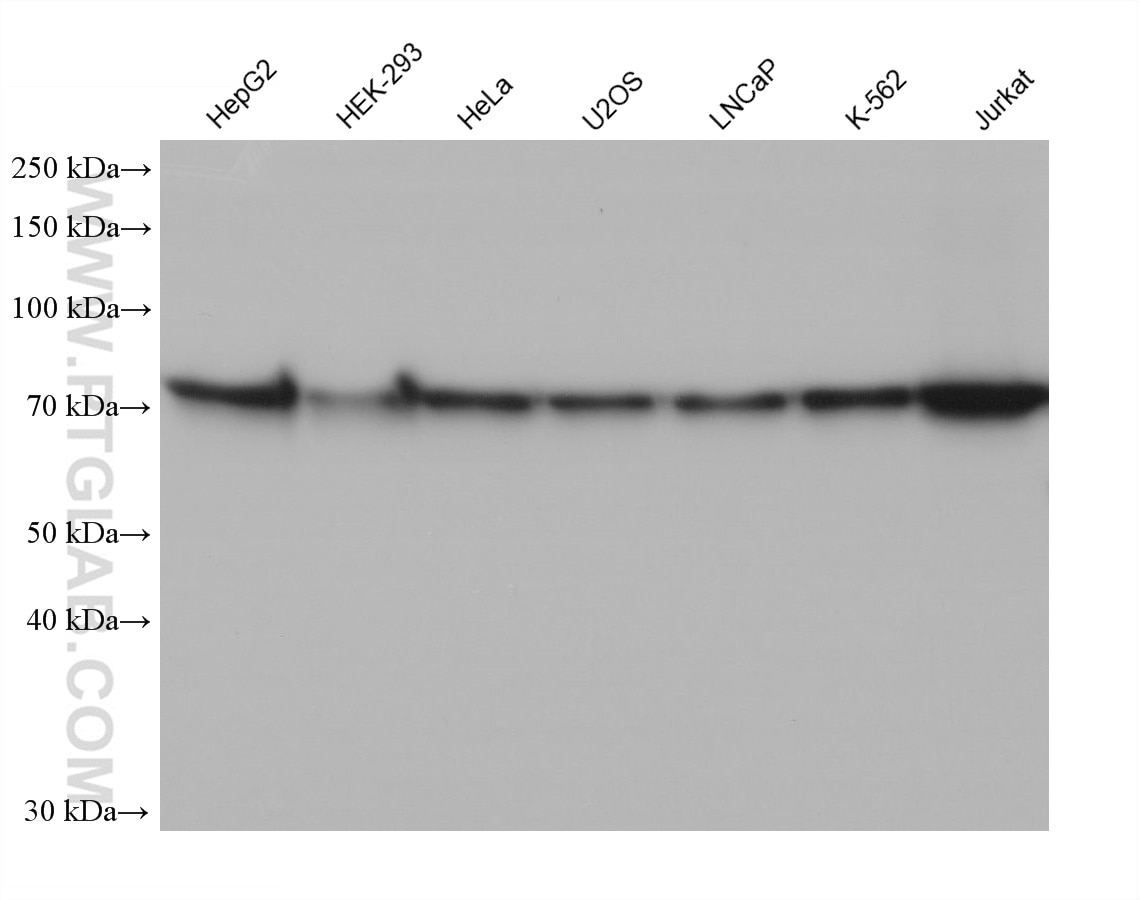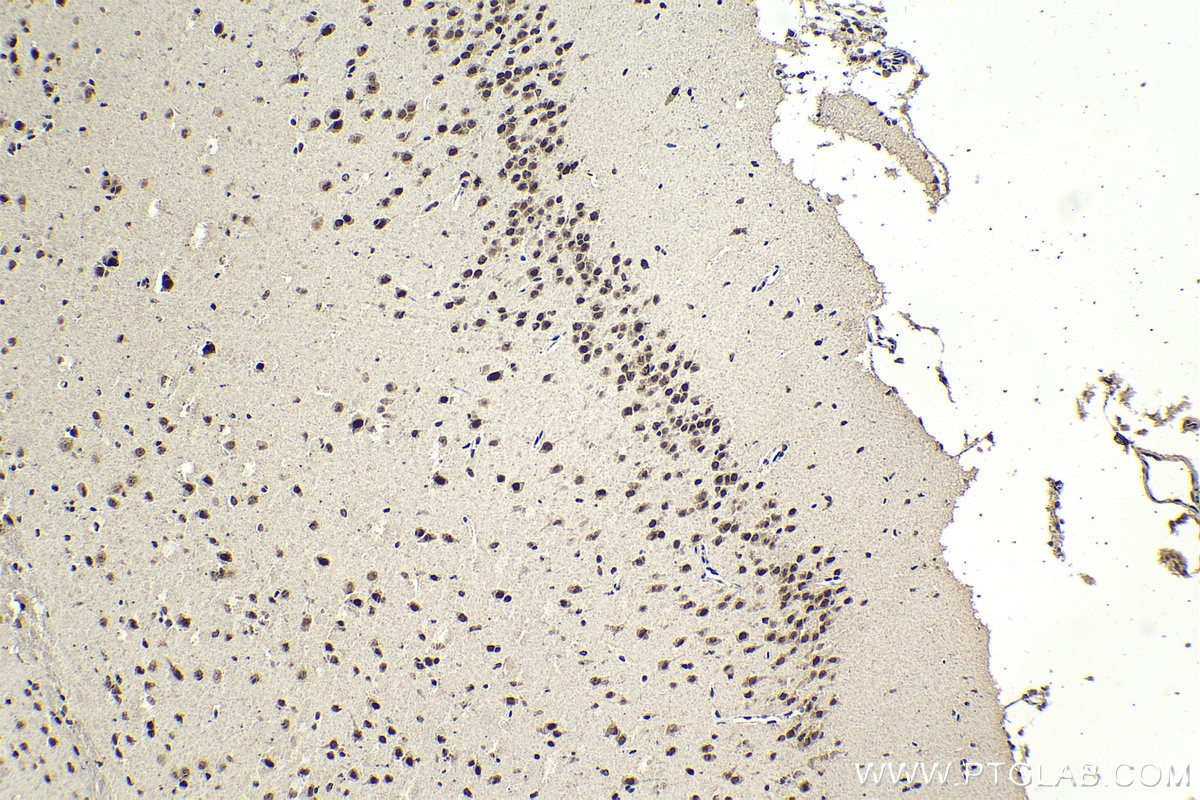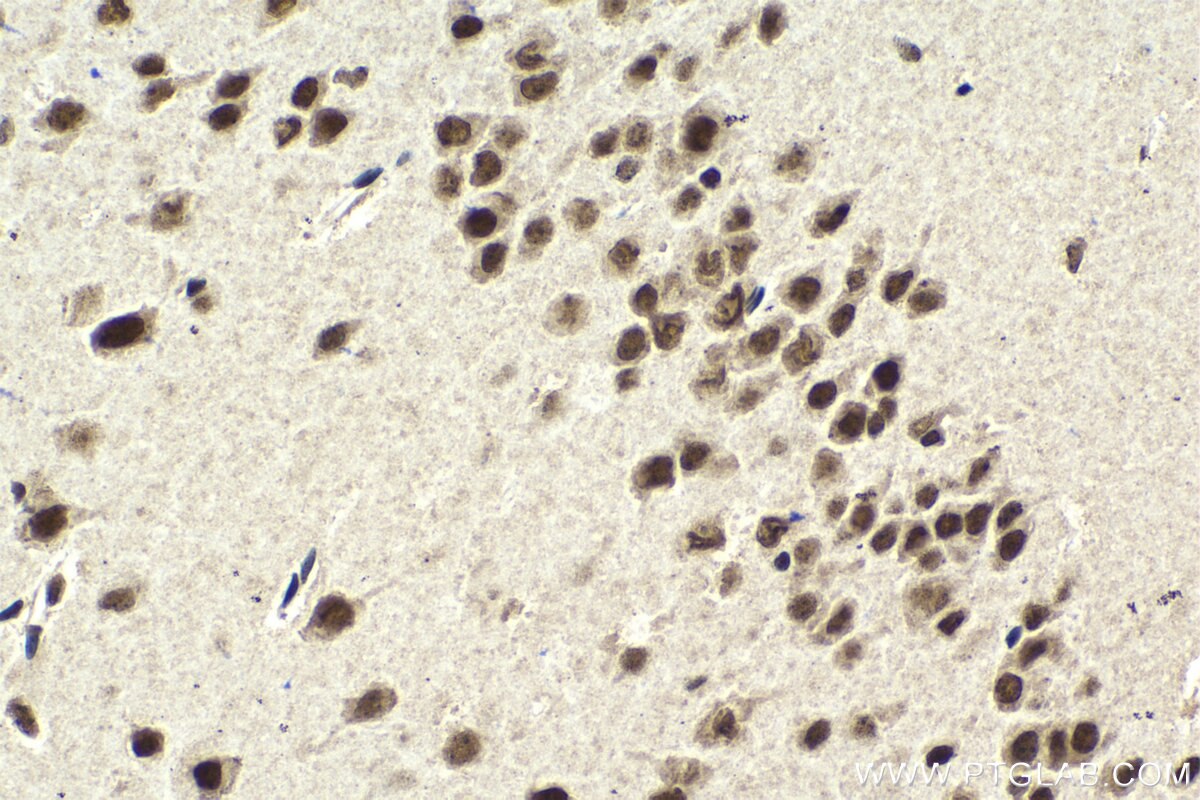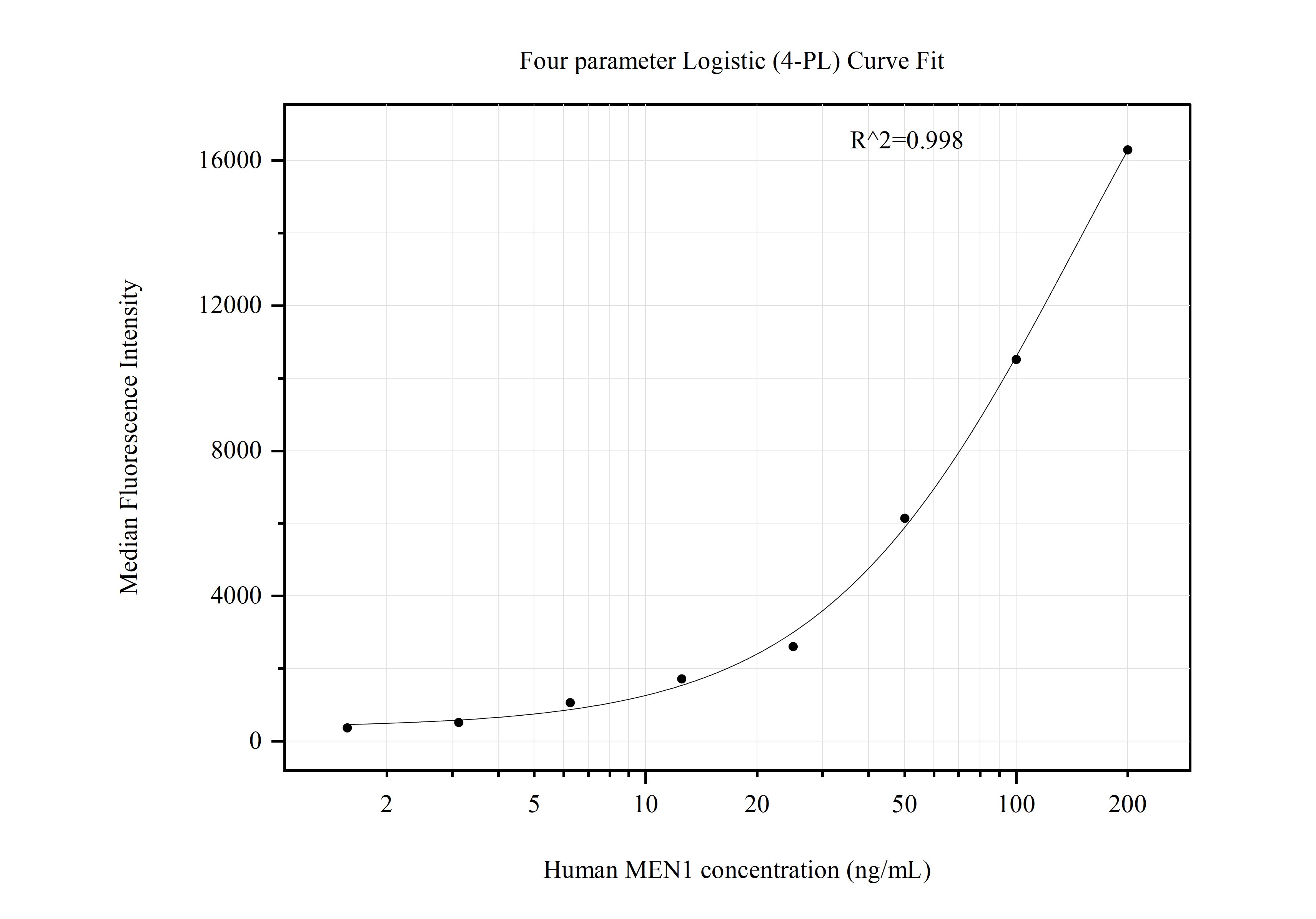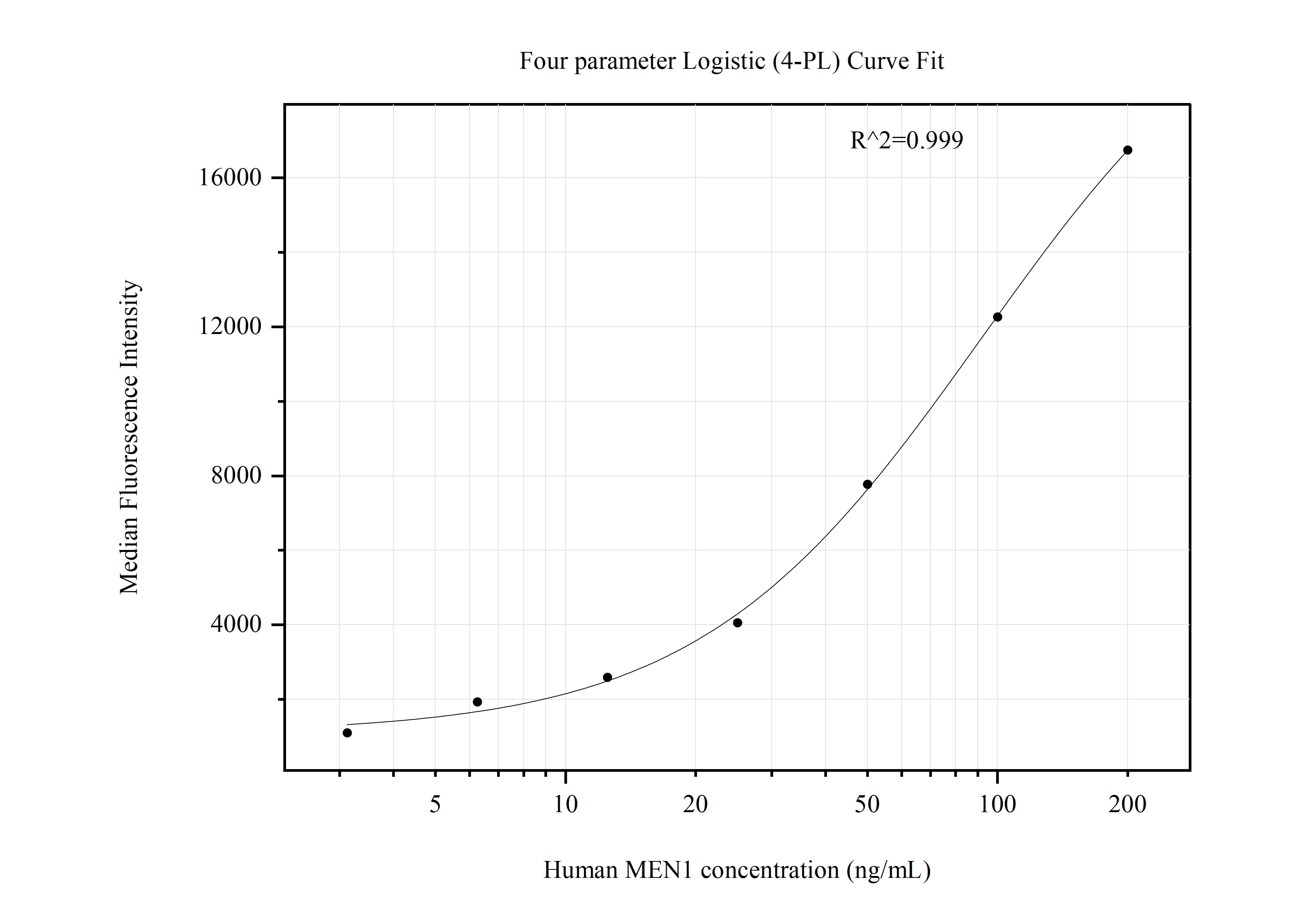MEN1 Monoclonal antibody, PBS Only (Capture/Detector)
MEN1 Monoclonal Antibody for WB, IHC, Cytometric bead array, Indirect ELISA
Host / Isotype
Mouse / IgG1
Reactivity
human
Applications
WB, IHC, Cytometric bead array, Indirect ELISA
Conjugate
Unconjugated
CloneNo.
3A6A11
Cat no : 68473-1-PBS
Synonyms
Validation Data Gallery
Tested Applications
Recommended dilution
| Application | Dilution |
|---|---|
| It is recommended that this reagent should be titrated in each testing system to obtain optimal results. | |
Product Information
68473-1-PBS targets MEN1 as part of a matched antibody pair:
MP50886-1: 68473-2-PBS capture and 68473-1-PBS detection (validated in Cytometric bead array)
MP50886-2: 68473-1-PBS capture and 68473-3-PBS detection (validated in Cytometric bead array)
Unconjugated mouse monoclonal antibody pair in PBS only (BSA and azide free) storage buffer at a concentration of 1 mg/mL, ready for conjugation.
This conjugation ready format makes antibodies ideal for use in many applications including: ELISAs, multiplex assays requiring matched pairs, mass cytometry, and multiplex imaging applications.Antibody use should be optimized by the end user for each application and assay.
| Tested Reactivity | human |
| Host / Isotype | Mouse / IgG1 |
| Class | Monoclonal |
| Type | Antibody |
| Immunogen | MEN1 fusion protein Ag7566 相同性解析による交差性が予測される生物種 |
| Full Name | multiple endocrine neoplasia I |
| Calculated molecular weight | 68 kDa |
| Observed molecular weight | 68-70 kDa |
| GenBank accession number | BC002544 |
| Gene symbol | MEN1 |
| Gene ID (NCBI) | 4221 |
| Conjugate | Unconjugated |
| Form | Liquid |
| Purification Method | Protein A purification |
| Storage Buffer | PBS Only |
| Storage Conditions | Store at -80°C. |
Background Information
MEN1, also named as Menin or MEAI, is a tumor suppressor protein encoded by the MEN1 gene. It is located in nucleus and ubiquitous expression in spleen and lymph node. The calculated molecular weight of MEN1 is 68 kDa. Its inactivation has been implicated in tumors of many endocrine tissues. Germline inactivating mutations of MEN1 gene are the main cause of multiple endocrine neoplasia type 1 (MEN1), a syndrome characterized by tumors in the pituitary gland, the parathyroid glands, and the enteropancreatic neuroendocrine tissues. Recent study shows astroglia menin deficiency leads to depressive-like behaviors in mice.
